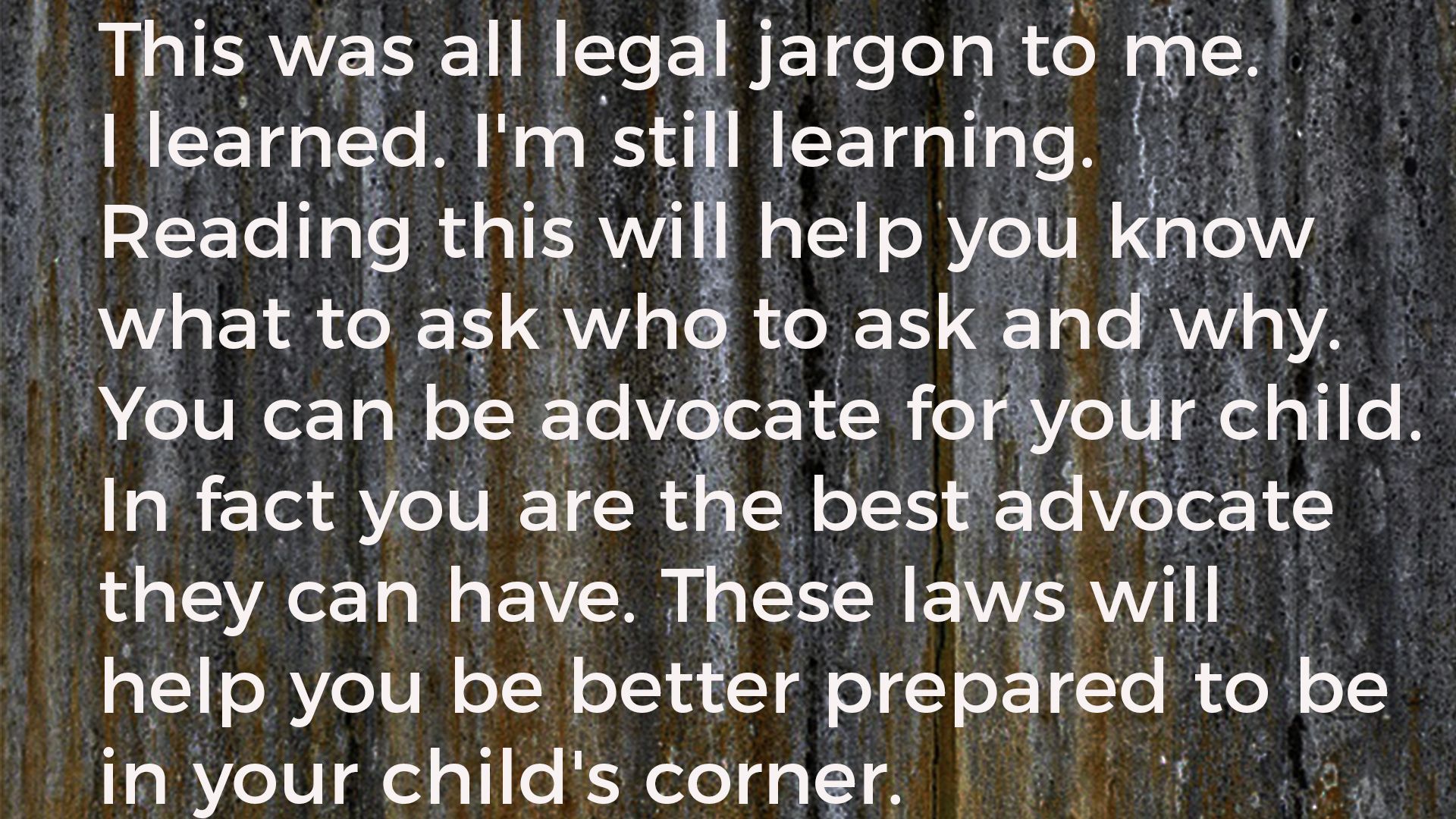Your Child's Rights
Students have the right to a safe education free from harassment, discrimination, and violence.
Title IX of the Education Amendments of 1972 is a federal civil rights law that prohibits discrimination on the basis of sex in any federally funded education program or activity. Sex discrimination includes sexual harassment, sexual battery, sexual assault, and rape that are “so severe, pervasive, and objectively offensive that it effectively bars the victim’s access to an educational opportunity or benefit” (Davis v. Monroe County Board of Education). Under Title IX schools must ensure that your child gets a safe education free from harassment and violence. Schools must also act to eliminate the harm caused by gender based discrimination and violence.
On April 5, 1986 Jeanne Clery was raped and murdered in her dormitory at Lehigh University. In 1990 a federal law that bears her name was enacted that requires the disclosure of campus crime information. The Jeanne Clery Disclosure of Campus Security Policy and Campus Crime Statistics Act of 1990 (known as the Clery Act) is a federal law requiring United States colleges and universities to disclose information about crime on and around their campuses. The Clery Act requires colleges and universities to do the following with regards to sexual assault reports:
Publish an Annual Security Report
Disclose crime statistics for incidents that occur on campus, in unobstructed public areas immediately adjacent to or running through the campus and at certain non-campus facilities;
Issue timely warnings about Clery Act crimes which pose a serious or ongoing threat to students and employees; and
Devise an emergency response, notification, and testing policy.
Additional mandates under the Clery Act are included in the 1992 Campus Sexual Assault Victim’s Bill of Rights.
Click here to learn more
A 2013 Federal law, Campus Sexual Violence Elimination Act (Campus SaVE Act), added important protections for survivors of intimate partner violence and stalking, in addition to many new protections for sexual assault survivors. Campus SaVE mandates fuller reporting of gender based violence incidents, requires provision of written rights to students reporting victimization, defines minimum standards for institutional disciplinary procedures, and instructs schools to provide programming to prevent and address dating violence, sexual assault, and stalking. An important new provision of Campus SaVE requires institutions to allow both parties to bring an advisor of their choice (including an attorney) to an institutional disciplinary proceeding.
The advocacy group Know Your IX has a clear breakdown of Campus SaVE.
Click here to learn more
Almost one-third (31%) of survivors of assault develop Post-Traumatic Stress Disorder (PTSD) some time during their lifetime. Both depression and PTSD are covered as disabilities under Title II of the ADA, as well as other psychiatric illnesses. Unfortunately, rarely are survivors connected to appropriate resources or informed that they have rights.In addition to requiring students to be given certain rights, the ADA also bars institutions from using someone disability to disqualify them from access to an education program, and form using their disability against them in the context of a sexual assault complaint investigation. A student’s history of depression, anxiety, or even suicidal ideation should not be used to discredit their report of sexual or interpersonal violence. The Department of Education requires colleges and universities to provide students with appropriate academic adjustments and auxiliary aids and services that are necessary to afford an individual with a disability an equal opportunity to participate in the school's program. This includes survivors of sexual assault.
Find out more here
Title VI and Race, Color and National Origin Discrimination
Title VI of the Civil Rights Act of 1964 protects people from discrimination based on race, color or national origin in programs or activities that receive Federal financial assistance. Title VI states that: No person in the United States shall, on the ground of race, color, or national origin, be excluded from participation in, be denied the benefits of, or be subjected to discrimination under any program or activity receiving Federal financial assistance. Programs and activities that receive Federal financial assistance from the United States Department of Education (ED) are covered by Title VI. ED maintains an Office for Civil Rights, with 10 regional offices and a headquarters office in Washington, D.C., to enforce Title VI.
Learn more here
REGIONAL CIVIL RIGHTS OFFICES
FERPA (Family Educational Rights and Privacy Act) is a Federal law governing the privacy of student educational records. Unfortunately, in the experience of many survivors and parents, colleges use FERPA as a “shield and a sword” - protecting themselves from exposure to lawsuits and the exchange of information with parents and lawyers, and maintaining tight control over the campus adjudication and response process. For example, colleges have used FERPA to refuse to share any information re: their student’s case with parents despite the student’s explicit request for parents to be kept informed. A college has the legal right to waive a student’s FERPA privacy rights in a health and safety emergency.
The Department of Education has created a chart outlining a school’s reporting obligations under Title IX and the Clery Act, and how each intersects with FERPA. The chart shows that although the requirements of Title IX and the Clery Act may differ in some ways, they don’t conflict.
